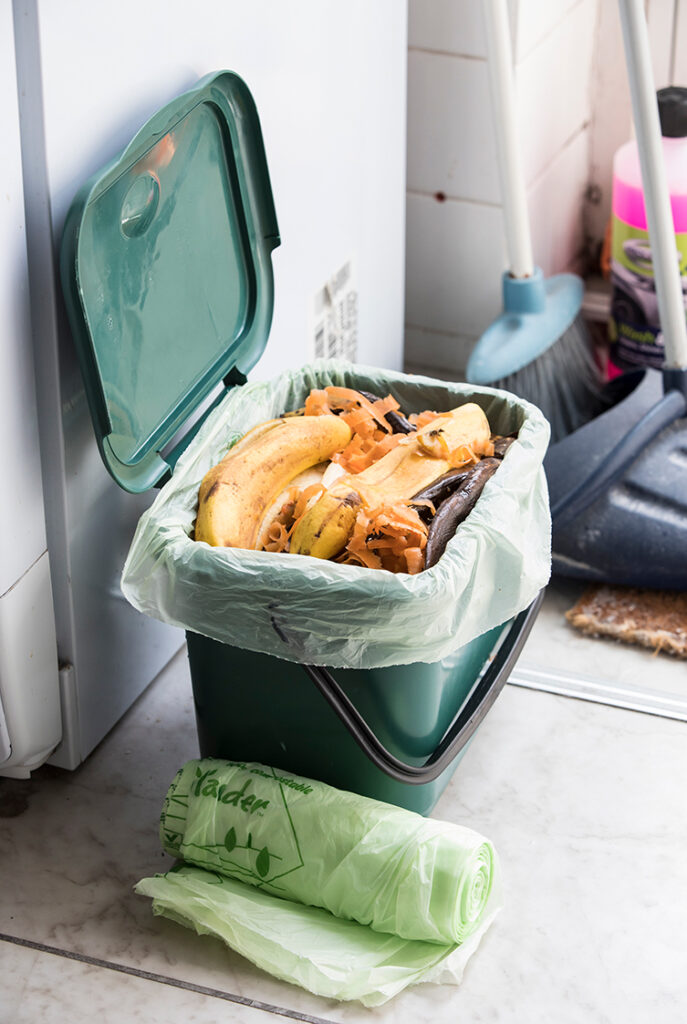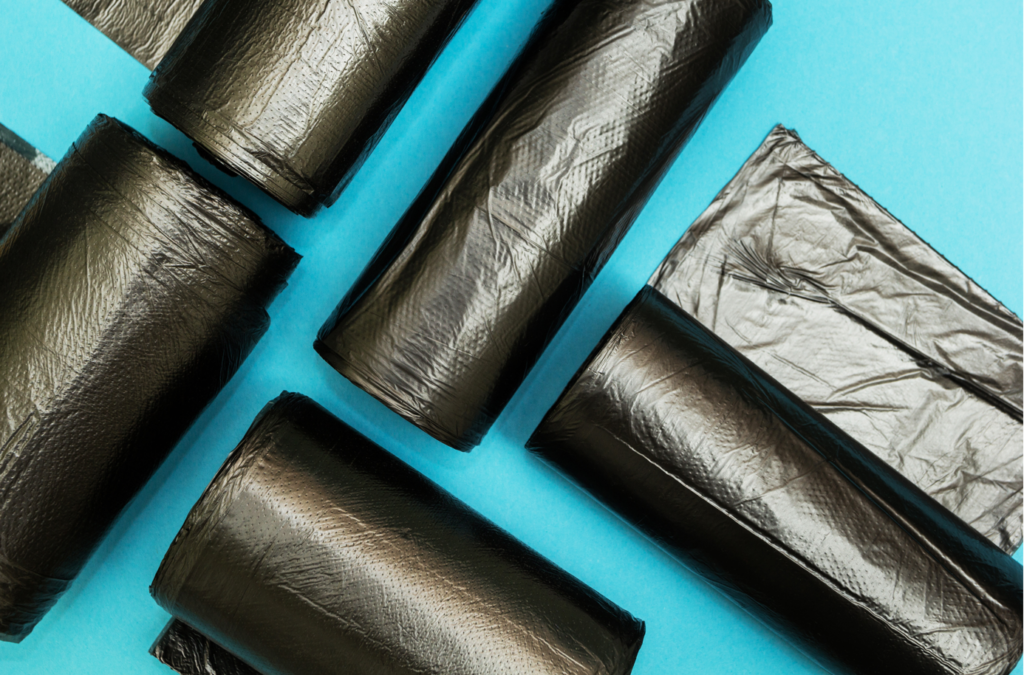
If you are an avid reader of our blog, you will see numerous news articles with tips and advice on best practices to manage waste and recyclables. It seems only fitting the next step would be to advise on which bag would be best for your application, and bust some myths along the way.
Whether you are capturing waste or containing goods, choosing the correct bag may sound like an easy job, when in reality, there could be a more economical option that you could utilise.
Waste and Recyclables
For all households and businesses, general waste is typically collected in a refuse sack or bin liner, before it is placed into the domestic waste bin. Due to the end of life being landfill, many of us opt for the cheapest option available, however, this is not always the best option to choose, nor the most sustainable.
A common issue with the cheaper options is that they are prone to tears and splits, which could cause the waste to spill out – and potentially contaminate recyclable batches of waste or even get into the environment. This is very common for cheap bags, but also bags that are overfilled, or the contents are too heavy for the liner itself. Ensuring you have bags that can withstand the weight of your contents, and capture it without splits or tears is a great way to ensure the waste remain in the sack (and only that sack). Cromwell are an accredited CHSA supplier, this is the customers’ guarantee they get what they pay for, ‘what’s on the box is in the box’, this ensures a 15kg bag will perform to this standard.
Selecting bag solutions that are made from recycled content is an additional sustainable step you can take when selecting your waste liners, this option also supports a circular economy and recycling strategies.
Food waste
Food waste is becoming the newest form of recycling collected kerbside from businesses and households. Typically residents are given a small waste bin called a food caddy where the food waste is collected, but opinions are often divided on the best liner to capture this waste. Whilst some people opt for no liner at all, others choose a polythene bag solution (as they would other waste) with a small few selecting what they believe to be the ‘greenest’ option of a paper bag. Each of these solutions has its own attributed issues, from excessive amounts of waste, to uncompostable or non-bio-degradable materials, these options regularly cause more harm than good to the environment.

A compostable bag is often the preferred bag because it reduces the amount of contimantion from products like plastic and the chances of waste escaping. Our compostable liners are manufactured from Ecopond® biodegradable plastic, using starch and lactide-based derivatives of plant sources, these products are fully compliant with the European composting standard (EN13432), which requires more than 90% of the plastic mass to convert into biomass, CO2 and water, with no harmful residue.
Paper vs. Plastic Argument
False green-washing claims have left consumers opting for paper solutions rather than plastics, believing these are a more resourceful option. Whilst paper bags can be recycled (when left in good condition), this seems to be the only benefit of using this material rather than plastic. Paper bags use far more of the earth’s resources to manufacture, they also weigh a lot heavier, thus producing more pollution when transporting. Many think they are the greener option due to their recyclability, this is only the case if they have not been contaminated or become damp.
Plastic bags often get demonised due to their ‘single-use’ title, however, this is in fact a false claim, and plastic bags actually have an extensive lifespan – that can re-used numerous times before they begin to deplete. This is due to their high strength capacity, which is another benefit they have over a weaker paper bag. Whilst paper certainly has some advantages over plastics, in terms of bags, it is fighting a losing battle. Read the debate further.
In summary
Whether you are capturing waste or recyclables, or simply storing and packaging goods, choosing the best bag can be a tricky task, this is where Cromwell can help. Our expert team can find you the best bag solution, based on use, application, and requirements, talk to our team today, and we will help find the best solution for you!